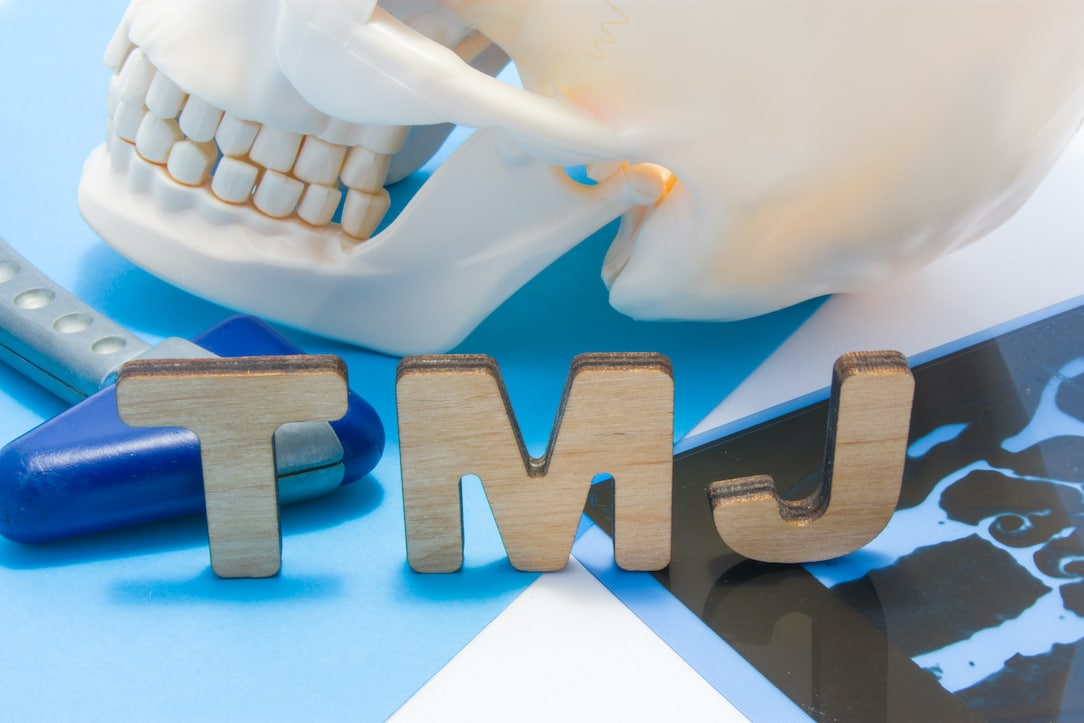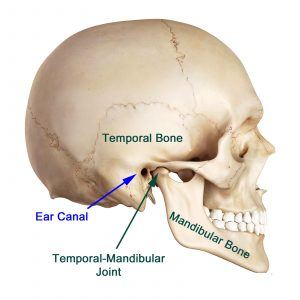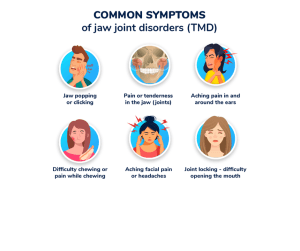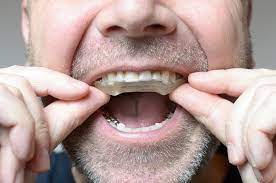
TMJ, or Temporomandibular Joints, connect the jawbone to the temporal bone on both sides of skull. These joints act like a hinge to assist the jaw with movements such as chewing or talking.

TMD refers to Temporomandibular Disorders. TMJ disorders are very common. They range in terms of severity and occur when the muscles surrounding the joints have experienced some sort of trauma.
Dentists are oftentimes the first to witness and diagnose TMJ disorders due to their knowledge of the jaw. Being that November is TMJ Awareness Month, we wanted to share some insight into this prevalent and unfortunate condition.
Common Signs or Symptoms of TMJ Disorders – What to Look For:
- Pain in the jaw area

- Headache
- Pain while opening the mouth or while chewing
- Pain or ringing in the ears
- A clicking, popping or grinding sound upon opening or closing the mouth
- Locking of the jaw in the open or closed position
TMJ disorders can be caused from one or several factors making an exact origin sometimes hard to pinpoint. They are usually a result of trauma but may also be linked to:
- Bruxism – or clenching/grinding your teeth
- Misaligned bite
- Arthritis
- Stress
What Can I do to Help My TMJ:
If you’re currently experiencing any of the above symptoms, it’s best to get an evaluation. Your dentist will do an examination to look for signs of clenching or grinding and may ask to observe as you open/close your mouth. X-rays or additional scans may also be needed.
Treatment options vary depending on the cause and severity of your TMJ disorder and may include some combination of the following:
- Wearing a night guard to prevent from clenching and grinding

- Referral to a physical therapist to learn a variety of exercises that help reduce pain and regain normal movement
- Education on changing daily habits that may aggravate TMJ
- Acupuncture or adopting stress-reducing behaviors such as meditation
- Non-surgical procedures such as Botox injections or Ultrasound
- Surgical procedures
TMJ pain can worsen and lead to more serious conditions. Please schedule a visit to our office if you would like an evaluation. Our skilled dentists, Dr. Timothy Gillespie and associates are trained to help our patients successfully treat TMJ disorders in Asheville, NC. We welcome you to call us at (828) 252-9351 to learn more!

